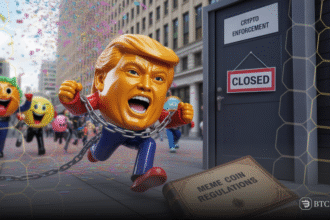The era of memecoins appears to be over as the crypto community reels from the recent $4 billion LIBRA scandal involving Argentine President Javier Milei. Castle Island Ventures partner Nic Carter declared that the memecoin trade is “unquestionably over,” signaling a shift in market sentiment.
Carter’s remarks, posted on X, pointed out the intrinsic weaknesses of the memecoin ecosystem. He was critical of the then-popular “fair launch” story that claimed to provide a level-playing ground to retail investors compared to funds and venture capitalists.
According to him, this illusion was broken by insiders taking advantage of prelaunch offers, insider trading, and botting strategies. The LIBRA fiasco that had the Milei coin appreciate to a worth of $4 billion within minutes exposed the rigged side of the launches.
Carter points to a root cause: memecoins upon speculation rather than substance. They thrived on the potential of fairness, but scandals repeatedly illustrated the opposite. Although certain launches could still materialize, the popularity of memecoins overall is waning. Seduced by the potential of quick profits, individual investors soon realize the sector’s exploitative nature and feel disappointed.
Regulatory crackdown targets memecoins
The fallout of the scandals could invite scrutiny by the regulator. It predicted a flood of enforcement actions regarding insider trading in the memecoin sector. On-chain activity creates a transparent trail that can lead to legal repercussions for the participants involved.
Amid this decline, the crypto market is refocusing itself. Improved token launches with reasonable valuations will gain traction. Carter underscored that the market is learning to adapt with a flight to quality tokens with real utility and potential cashflows. Platforms with KYC and accreditation are becoming increasingly popular for prelaunch rounds with the founding team and retail participants.







